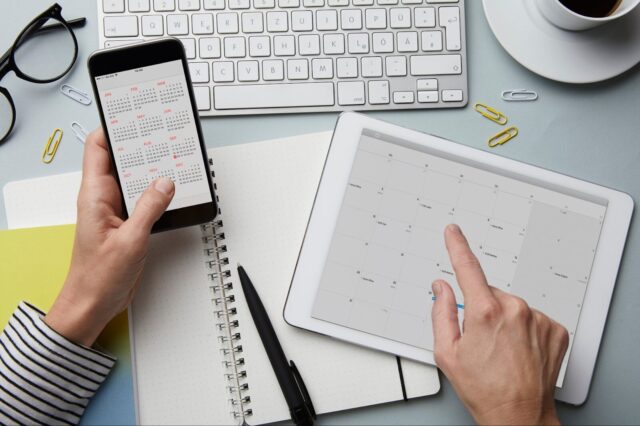
Welcome to the exciting realm of education, where time is a precious commodity and hungry minds eagerly await knowledge. Today, we delve into a thought-provoking question: Can anything else find its place alongside the pursuit of studying? In our relentless pursuit of academic excellence, the idea of engaging in other activities while studying may appear as an unthinkable compromise.

However, let us ponder for a moment. What if we were to uncover a delicate balance—a harmonious blend that could amplify productivity, foster creativity, and nurture personal well-being? With the advent of academic apps, handy tools, and convenient writing assistance available on platforms like https://en.ewritingservice.com/buy-term-papers.html, maneuvering through academic challenges has become easier, allowing us to allocate ample time for other commitments.
But here lies the question: What activities are truly worthy of our limited spare time? Join us on a captivating journey as we unravel the mysteries of multitasking while studying, embarking on a quest to unlock your hidden potential. Prepare to discover insightful strategies that will not only enhance your academic performance but also enrich your overall life experience.
1. Multitasking Mishaps: The Myth Debunked

Multitasking, that infamous act of juggling multiple tasks, may seem like a time-saving strategy, but when it comes to studying, it’s a hindrance. Science reveals that our brains struggle to concentrate fully on two tasks simultaneously, resulting in reduced efficiency and comprehension.
Dividing attention across various channels prevents us from giving our full focus. So, as tempting as it may be to scroll through social media while studying, resist the urge and prioritize single-tasking for optimal learning outcomes.
2. Optimal Study Breaks: More Than Just Procrastination
Study breaks aren’t mere distractions; they play a vital role in maintaining productivity and focus. Research suggests that incorporating activities promoting relaxation and rejuvenation during these breaks can enhance learning outcomes.
Instead of mindlessly scrolling through social media, consider activities like light exercise or mindfulness techniques. Stretching or going for a brisk walk improves blood circulation and oxygen flow, boosting alertness. Deep breathing or meditation reduces stress and clears the mind. Utilize study breaks wisely to supercharge productivity and improve overall well-being.
3. Active Learning Techniques: Igniting Your Learning Potential

Passive reading and listening don’t cut it when it comes to effective studying. Active learning techniques offer a dynamic and engaging approach that enhances comprehension and retention.
Flashcards facilitate active recall, strengthening memory by forcing your brain to retrieve information. Discussion groups deepen understanding through the exchange of ideas and perspectives.
Teaching others solidifies your grasp of the material while enhancing critical thinking and problem-solving skills. Embrace these techniques for a more enjoyable and rewarding study experience.
4. Balancing Focus and Relaxation: The Key to Effective Studying
Striking a balance between intense focus and relaxation is vital for optimum studying. Prolonged periods of concentration lead to mental exhaustion and diminishing returns. Integrating relaxation techniques into your study routine can significantly enhance productivity.
Engage in mindfulness exercises, deep breathing, or gentle stretching during short breaks. These moments of relaxation rejuvenate the mind, reduce stress, and improve overall well-being. Achieve the perfect equilibrium between focused study and rejuvenating relaxation for optimized results and a healthy mindset.
5. Personalization and Individual Learning Styles: Unlocking Your Unique Potential

One size doesn’t fit all when it comes to studying. Personalization based on your learning style greatly impacts your academic success. Some thrive in quiet environments, while others need background noise to concentrate.
Visual learners benefit from diagrams and charts, while auditory learners prefer lectures or recordings. Kinesthetic learners excel with hands-on activities. Identifying your learning style allows you to tailor study methods for maximum absorption and retention of information. Embrace your uniqueness and watch your study sessions become more effective and enjoyable.
6. Strategies for Effective Multitasking: Making It Work
Multitasking can be a powerful tool if approached strategically. Prioritize tasks, focusing on high-priority items before attempting to multitask. Break larger tasks into manageable chunks to prevent overwhelm.
Utilize time-blocking techniques, allocating specific time slots for different tasks. Minimize distractions by creating a dedicated workspace and turning off notifications. Mindfully combine tasks that complement each other, avoiding those that compete for attention.
Implement these strategies to multitask effectively, accomplishing more without sacrificing quality.
7. Pitfalls and Distractions to Avoid: Navigating the Digital Minefield

In today’s digital age, distractions lurk around every corner, challenging effective studying. Social media platforms, email notifications, and streaming services entice us, diverting our attention from the task at hand.
Establish a distraction-free environment by silencing your phone and using website blockers. Set clear boundaries with friends and family, communicating your study hours. Beware of the allure of multitasking unrelated activities that drain focus.
Proactively identify and avoid distractions to create an environment conducive to concentrated studying, unlocking better results.
8. Developing Effective Study Habits and Routines: The Path to Academic Success

Mastering effective study habits and routines is the key to achieving academic excellence. Create a consistent study schedule that aligns with your energy levels and commitments. Designate a dedicated study space, free from distractions.
Break down tasks into manageable chunks, setting specific goals for each study session. Embrace active learning techniques like flashcards or teaching others to deepen understanding. Take regular breaks to recharge and avoid burnout. Cultivate these habits, adhering to a routine that enhances focus, retention, and overall productivity in your studies.
Final Take
In conclusion, debunking the myth of multitasking and adopting effective study strategies can transform your learning experience. Recognizing that our brains struggle to concentrate fully on multiple tasks simultaneously, we can prioritize single-tasking for optimal outcomes.
Moreover, we can utilize study breaks as opportunities for rejuvenation, rather than mere procrastination, enhancing productivity and well-being. Also, embracing active learning techniques ignites our potential by engaging our minds and promoting comprehension.
Therefore, we suggest that you employ strategic multitasking techniques, avoid distractions, and develop effective study habits and routines to pave the path to academic success. By implementing these insights, you can unlock your true potential and achieve remarkable results in your academic endeavors.









